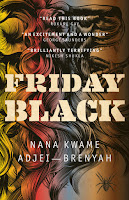You love Krasznahorkai or you hate him. In fact, that's what great art does to you. It does not leave you indifferent. The artist takes risks, breaks norms, breaks codes and expectations, and either you go along on that journey, or you just stop and decide you were on the wrong journey to start with. Both options are of course valid.
"
Seiobo There Below" is brilliant. I can recommend it. In "The World Goes On", the Hungarian author presents us with twenty-one 'stories' if that word can be used, or maybe rather 'pieces of text', organised in three parts "He speaks, He narrates, He bids farewell".
As with most of his other writings, Krasznahorkai destabilises the reader. You, the reader, have the incredible challenge to find out what's actually going on, and in that respect you are exactly like most of the main characters in his prose: struggling to understand reality, which is opaque, obscure, illogical and unintelligible. Despite this, the characters keep trying to pierce through this oppressive and dreamlike complexity, asking questions, wading through, blindly. Our senses are not enough to grasp what's happening, or they are deceptive.
If the characters have problems understanding what is going on, then the narrator has even a tougher job: language is completely inadequate to capture what's going on, as is our rationality and sense of logic. But like in a dream, everything that happens has a dramatic and emotional impact on the characters. Even if reality is hard to grasp and to navigate, you have to move on, you have to struggle your way through it, and that effort makes you exhausted and breathless and may even move you to tears.
Reading Krasznahorkai is an almost physical experience. His endless sentences, his constant shifting of alternative possibilities, the predicament of the people in the story: it hurts, it takes your breath away.
At the same time, he is inventive and creative with language, going deep into the nature of our world, travelling to distant places (China, India, Russia), his texts are speeches (delivered to an unknown audience, with no clear instructions on the topic by unknown sponsors), nightmares, or the sermon by a bishop who explains to his congregation that they have failed, that there is no hope for them, that God has turned away from them. It is all about our little humanity, our limits of understanding in a meaningless environment that defies understanding.
On of the last 'stories' is called "The Swan of Istanbul", and it contains 'seventy-nine paragraphs on blank pages'. All the pages are blank, but at the end of the blank pages, you get all the footnotes to what is not written, mentioning the sources, and adding explanations.
Without a doubt, Krasznahorkai is one of the most profound and creative writers of the moment.
Enjoy!




















